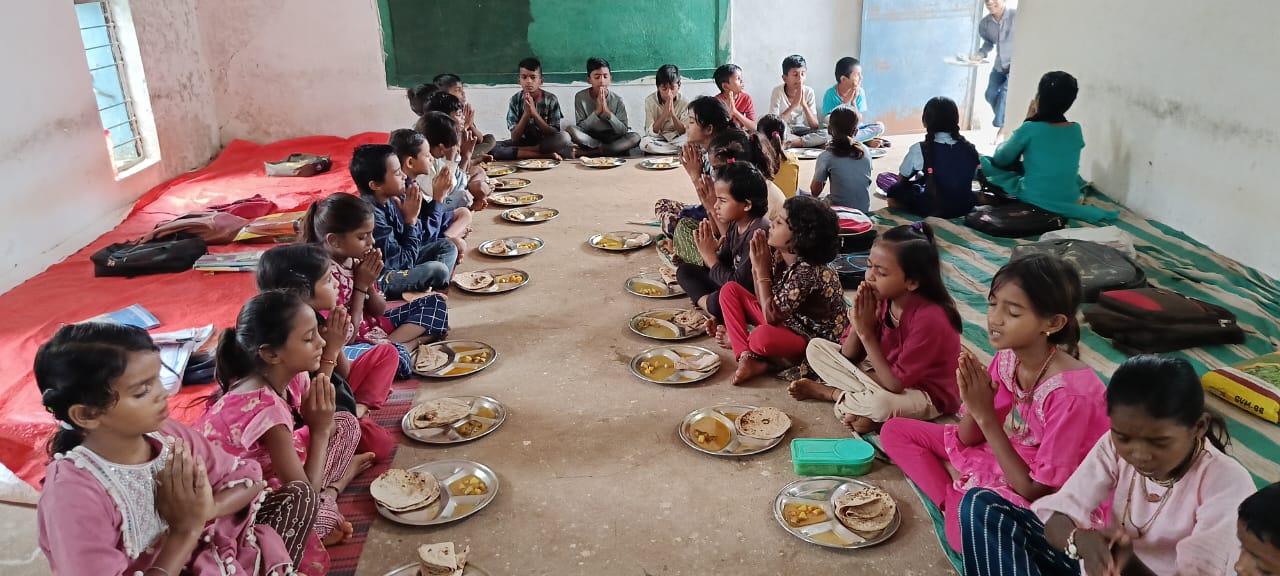Tatukhedi is a village surrounded by forests, in the Udaynagar region of Dewas district. Most people here depend on daily wage labour for survival. Almost all the children study at the village’s government school, which has classes up to the 8th standard. However, the school used to be poorly run, with no regular hours – its opening and closing times seemingly based on the school teacher’s whims. In the rainy season, the children would often come home early, or the teacher would announce a holiday for no reason. Such randomness was quite routine. The village women, increasingly concerned about the adverse effect on their children’s future, spoke about their anxieties at a Hissedari Sabha[1] meeting. During the meeting, they decided to visit the school and see for themselves what the problem was.
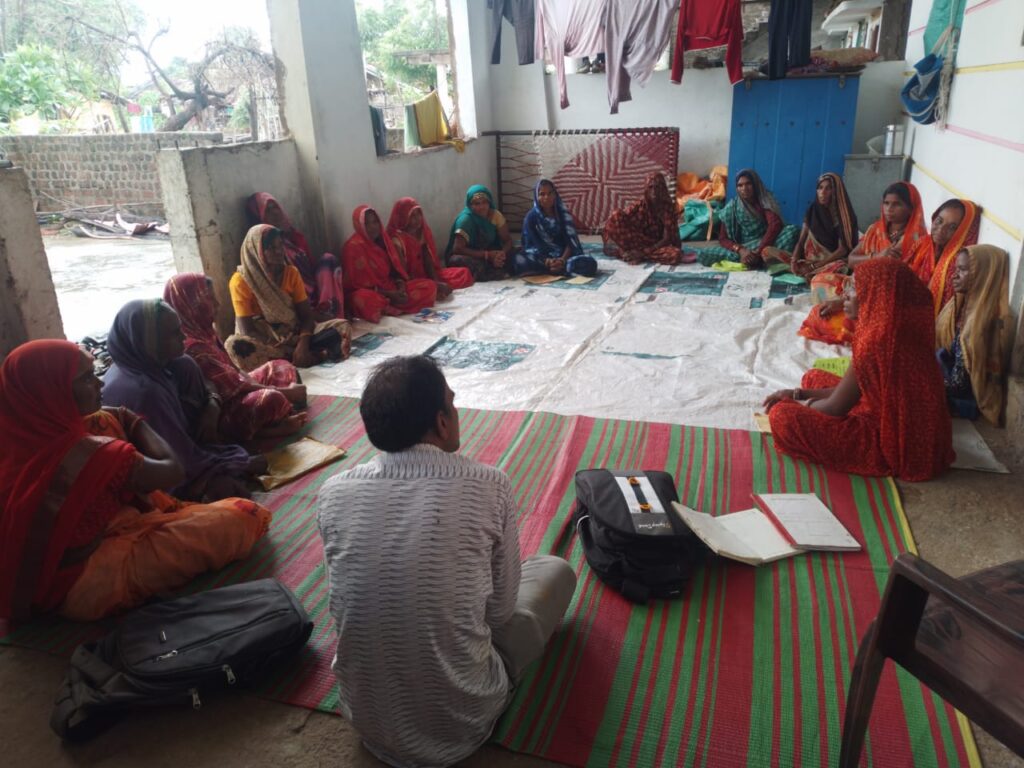
Hissedari Sabha meeting
The school visit brought a number of issues to light. The roof leaked, with water dripping on the students as well as soaking their schoolbooks, etc. The midday meal to which the children were entitled had ceased to be served a while ago. Besides, the rule about providing pregnant women with a nutritious food packet every Tuesday was not being followed. The open ground in front of the school tended to get flooded – not only depriving children of their play space, but causing many to slip and fall. When the women asked the teacher what the school administration was doing to address these varied problems, he sought to reassure them. He promised that the midday meal would be resumed from the very next day. Taking him at his word, the women went away feeling hopeful. A whole week later, nothing had changed: neither had the midday meal made an appearance, nor had any roof repairs begun. The women now turned to the Samaj Pragati Sahayog (SPS) worker for help (Hissedari Sabha meetings are organised by these workers). The SPS worker advised them to go and submit a petition at the Janpad Panchayat (District Council) in Bagli, but suggested they first try speaking to the school teacher once again.
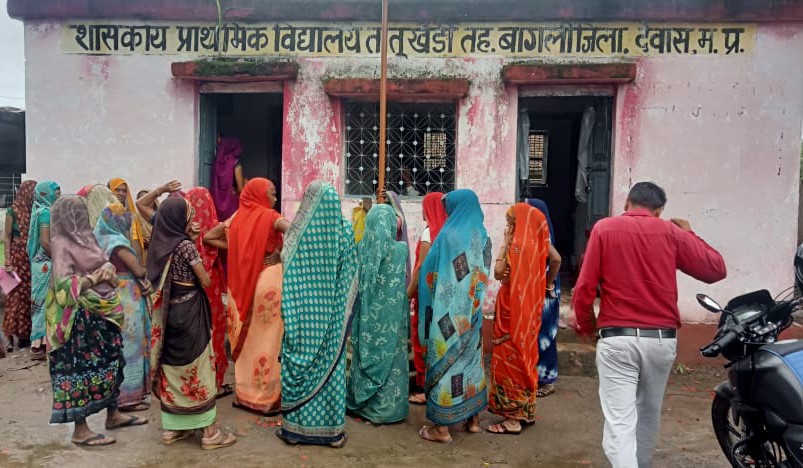
Women of the village visiting the school
Once more, the Hissedari Sabha members went to the school, and this time, refusing to stand for any further dilly-dallying or excuses, they clearly told the schoolteacher, “Connect us to the Jan Shikshak (Cluster Academic Coordinator),[2] or we’re going to the District Council tomorrow!” The women’s unity and determination had the schoolteacher in a tizzy, and he gave them his superior’s phone number. The women called up the Jan Shikshak and informed him of the school’s problems in detail. A day or two later, the Jan Shikshak paid an official visit to the Tatukhedi school. He upbraided the schoolteacher soundly, and also summoned the Aanganwadi worker and issued a caution about the work needing to be done properly. Within three days, the school roof had been repaired, the open ground had been evenly surfaced with two trolley-loads of stone, and the children were being served nutritious meals. The Tatukhedi village school’s pupils no longer suffer any of the old problems.
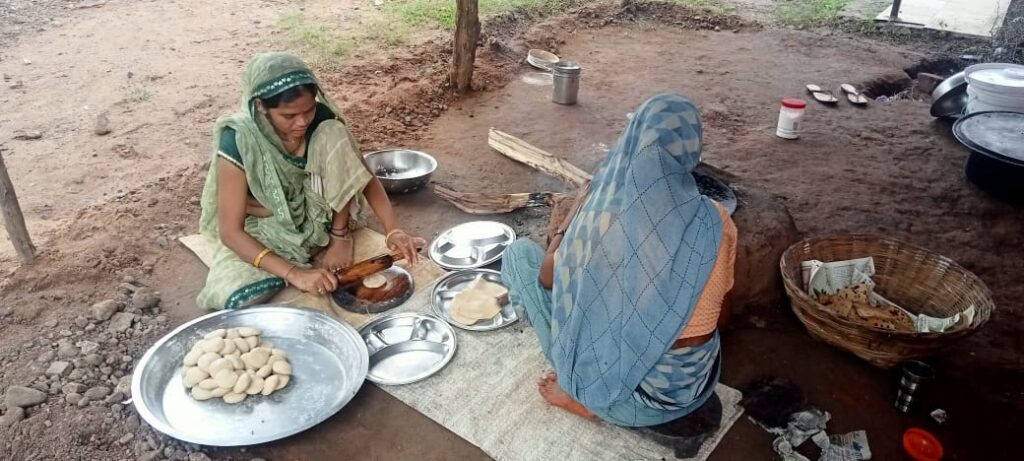
Mid-day meal preparation at the school
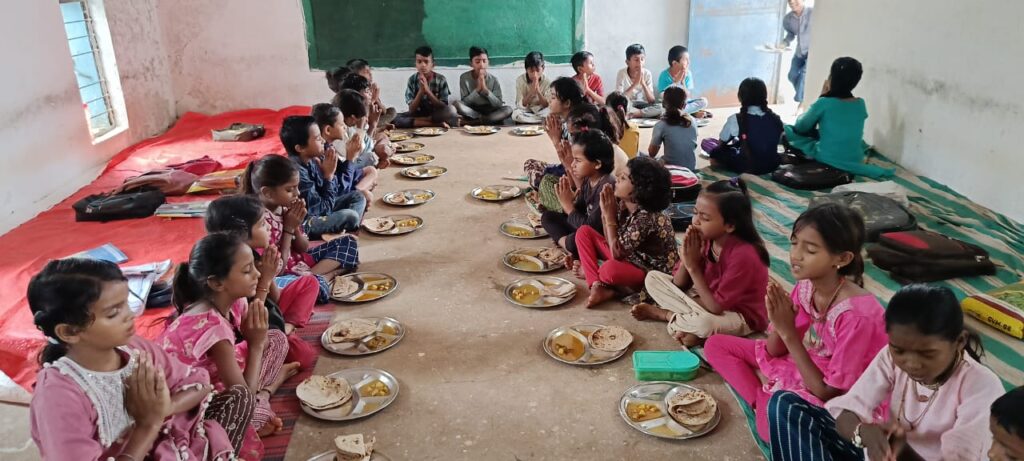
Children having mid-day meal at the school
The women of Tatukhedi had shown the way forward by taking matters into their own hands. Hissedari Sabha meetings are undeniably playing a significant role in creating spaces for women to come together, discuss common problems and find solutions. Through this process, village women learn to identify matters of local concern, and are able to transform their own lives by means of collective effort and with newfound confidence.
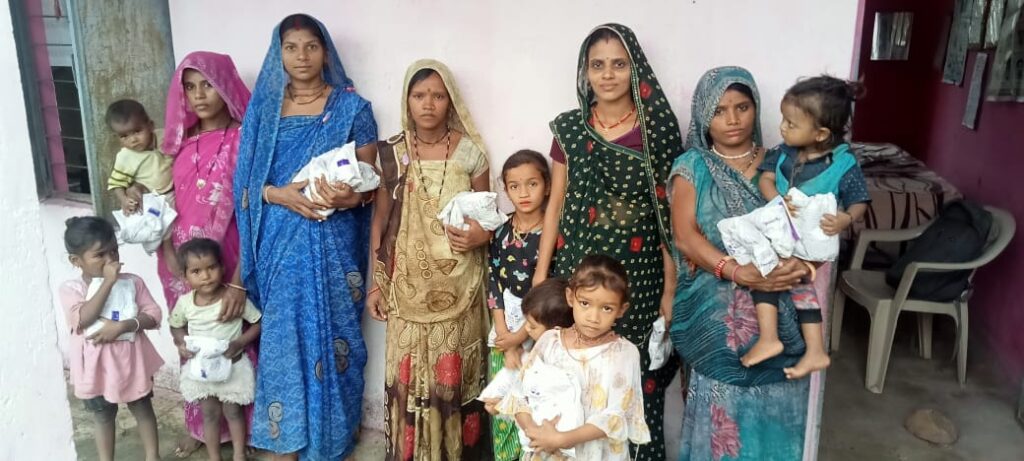
Pregnant women resume to get access to nutritious diet at Anganwadi
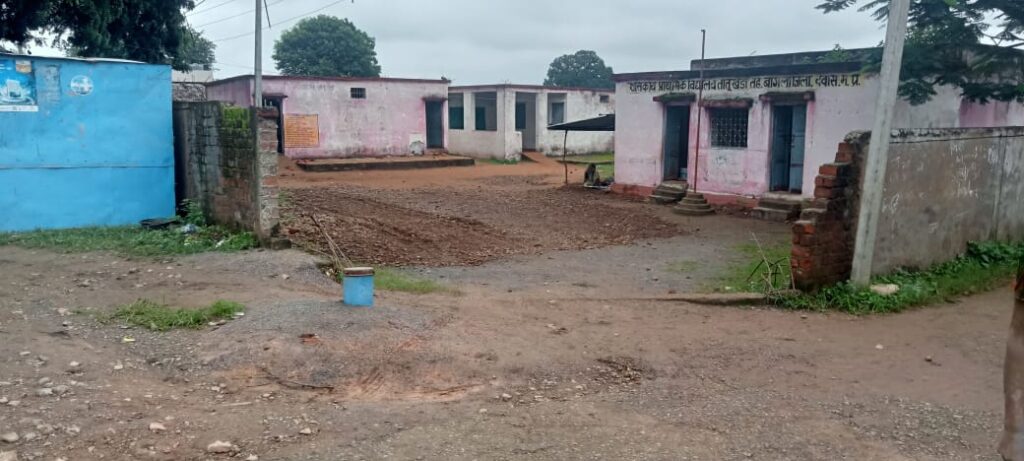
Repair work starts at the school playground
[1]meetings organised by members of Self Help Groups (SHGs) to discuss various issues of concern for their villages – such as access to drinking water, PDS shops, toilets, pension schemes, PM Awas Yojana, etc.
[2]an officer attached to the Department of Education, whose job includes monitoring schools in the area and keeping track of their functioning.
Writing: Roshni Chouhan
Source: Mahesh Gurjar
Photography: Mahesh Gurjar, Resham Jaamle
Translation (Hindi to English): Smriti Nevatia
Guidance: Pinky Brahma Choudhary
Page Layout: Roshani Chouhan

